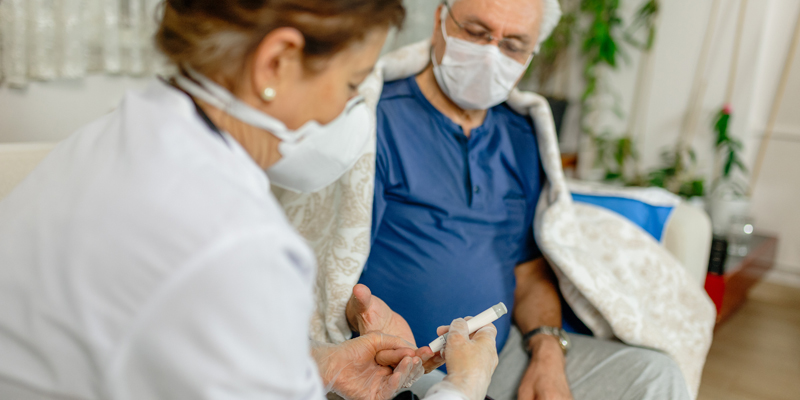The COVID-19 infection is a major health challenge for diabetics all around the world. Diabetes has been identified as a risk factor for severe COVID-19 infections. Leading international health associations like the WHO and the CDC have warned about the COVID complexity arising due high blood sugar levels.
As a matter of fact, when patients suffering from diabetes develop viral infection, the treatment procedure becomes even more difficult due to variation in blood glucose levels and, possibly, due to diabetes related complications and this can be attributed with two major factors. Firstly, the immune system of diabetics is compromised, making it difficult to fight against the pathogen and likely increasing the recovery duration. Secondly, the infecting pathogen thrives better in an environment with elevated glucose levels.
Further to this, majority of patients with type 2 diabetes are obese and obesity itself is a risk factor for severe infection. Also, people with extreme obesity generally have mechanical respiratory issues, with decreased ventilation of basal lung area which expands the risk of pneumonia as well as reduced oxygen saturation of blood. Obese people also have increased asthma risk and those with obesity and asthma have severe exacerbations and diminished response to several asthma medication. These patients are always at a very high risk of contracting COVID infection and even if they do, the decreased lung ability puts them at a very high risk.
Lastly, late diabetic complexities, for example, diabetic kidney disease and ischemic heart disease may complicate the circumstance for individuals with diabetes, making them frailer and further increasing the severity of COVID-19 infection, exposing them towards the need of care, for example, intense dialysis. Various studies demonstrate that COVID-19 could cause intense cardiovascular injury with cardiovascular breakdown, prompting disintegration of circulation.
To sum up, patient with diabetes are a high-risk and a complex group of patients seeking care for COVID-19, with an increased requirement of hospitalization. Diabetics need intensive care and attention to minimize the risks and fatalities associated with COVID-19. That is why it is vital for people with diabetes to follow the general prevention advice given by authorities to stay protected and reduce the risk of contracting the COVID-19 disease.
What should people with diabetes do to protect themselves, or their diabetic loved ones, during the pandemic?
- Keep adequate stock of diabetes supplies (ketone strips, needle etc.) over-the-counter medications and medical supplies (like rubbing alcohol, tissues etc.) to treat fever and other symptoms.
- Always maintain a safe stock of insulin.
- Stay vigilant of blood glucose levels of the patient
- Stay informed of practices to treat sudden low glucose levels
- Have sufficient stock of food items and groceries
- In case of lone stay, ensure a close relative or friend know your diabetes status
- Follow guidelines issued by the government
- Stay clean and maintain proper hygiene
- Avoid unnecessary travel
- Keep informed and updated with authentic information

